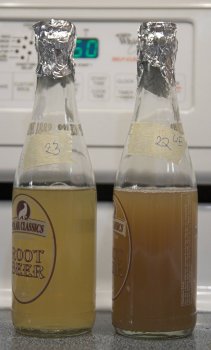Hey I appreciate the input but by being un pleased do you mean you couldn't even drink it?
In hindsight, and in comparison to what I have made since changing to all grain, they were probably not drinkable.
I'm not saying there is anything at all wrong with extract, of course, it just didn't give results for whatever I was doing and I had transitioned to all-grain before I got to the bottom of it.






















![Craft A Brew - Safale BE-256 Yeast - Fermentis - Belgian Ale Dry Yeast - For Belgian & Strong Ales - Ingredients for Home Brewing - Beer Making Supplies - [3 Pack]](https://m.media-amazon.com/images/I/51bcKEwQmWL._SL500_.jpg)

















